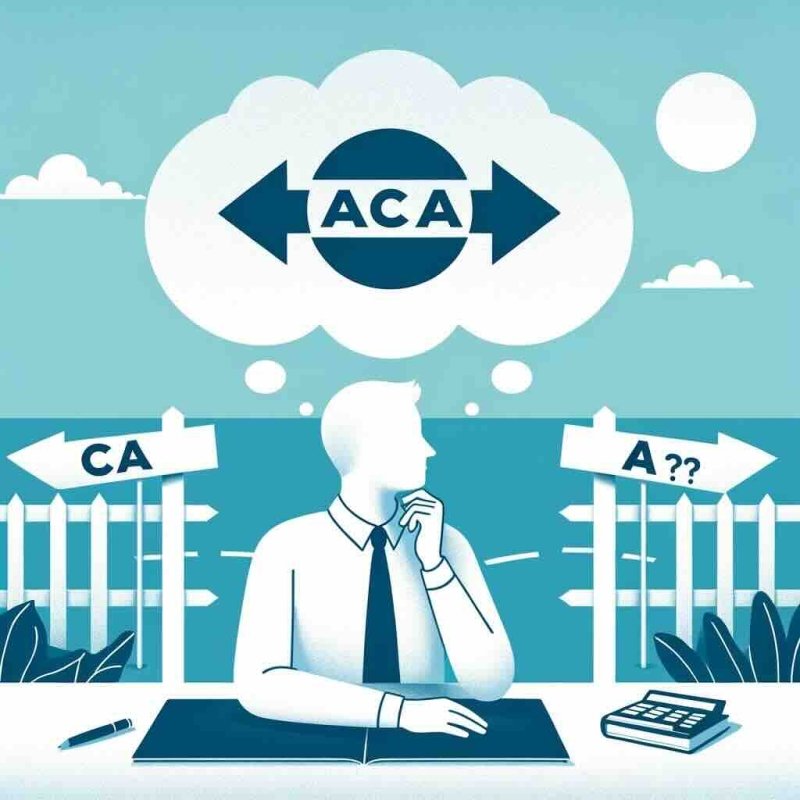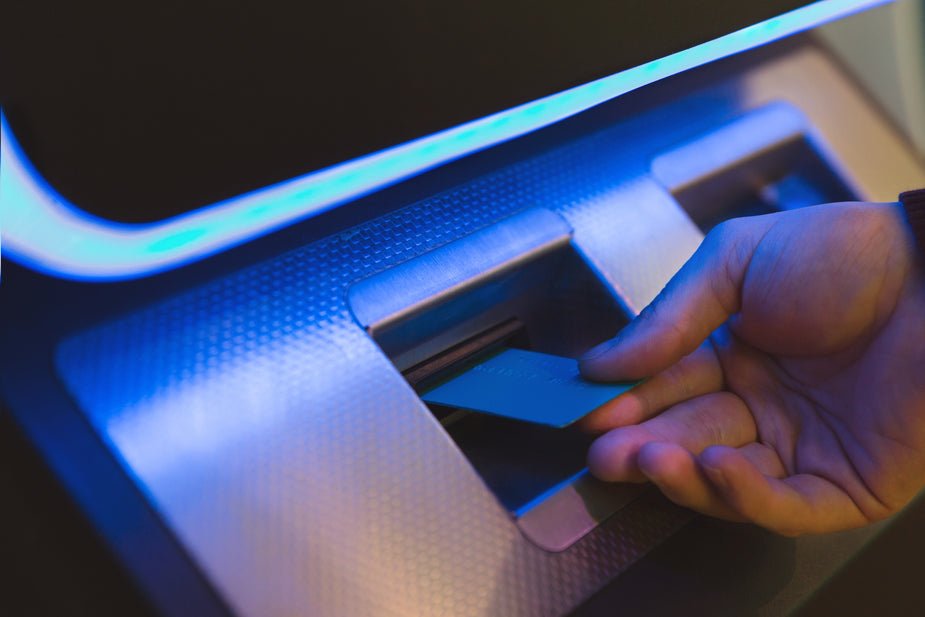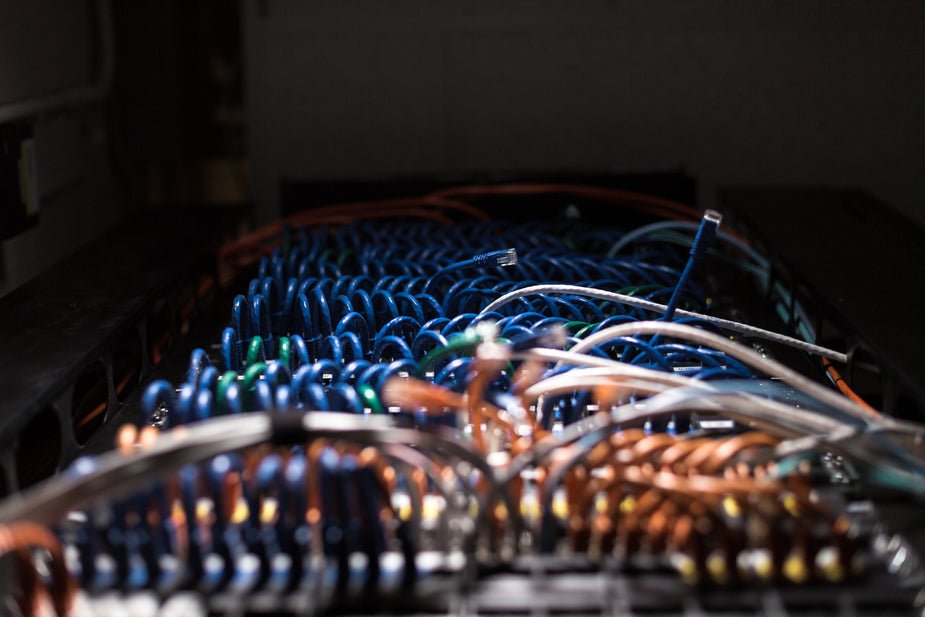Blockchain use cases in various Industries.
In the past few years, blockchain technology has been gaining a lot of attention due to its potential to revolutionize various industries. Numerous blockchain use cases can potentially improve different aspects of our lives. This article will explore some of the most promising blockchain use cases. Stay with us to find out more!
Looking at blockchain through the lens of cryptocurrencies only offers a minimal view of its value.
Blockchain provides a system for managing any transaction requiring strong security and detailed records without requiring a middleman. As such, the blockchain ecosystem extends far beyond Bitcoin, potentially transforming industries and how they handle transactions, financial and otherwise.
Consider some examples that show how blockchain can make a difference in business activities.
- Insurance industry. Due to blockchain's encryption and distributed verification features, a trusted proof of work is available at each stage of claims processing. This means that information is recorded onto a blockchain and confirmed by the network, ensuring only valid claims and contracts are processed. Such an approach could improve customer service and decrease fraud.
- Identity fraud: Assuming that identity management is also enforced on the blockchain, criminals could no longer, for example, steal valuable paper-based information.
- Banking and finance: Businesses involving stocks, derivatives, loans, and other assets that could utilize blockchain's large-scale distributed network to generate an immutable, secure record with infinite history. Examining a company's complete records will increase transparency in transactions, revealing any inaccuracies or hidden accounts.
- Luxury industry: Expensive items for sale in high-value markets can also benefit from using blockchain. This includes transactions involving jewels, artwork, cars, private planes, and even antiques and collectibles. Blockchain will provide a definitive registry of ownership and be able to certify the provenance of rare and big-ticket items. Trust is assured since there are immutable and safe records of all transactions.
- Media-oriented businesses can profit from blockchain too. Smart contracts can prevent piracy and ensure artists receive payment for their work. Every instance of a song or movie being played, streamed, or downloaded creates a unique record on a blockchain. Because ownership rights can be locked into the blockchain code, unlawfully obtained content would be made unreadable, making illegal downloads useless. This also allows payments to be split equitably among all the relevant parties.
- Healthcare: Blockchain can benefit the healthcare system as well. Its constant encryption and permanent transaction history provide more secure and efficient storage and transmission of health records, medical payments, insurance claims, and other complex transactions. Blockchain can create a shared database of information that everyone can access no matter what medical system they use while also providing increased security and privacy and a better system for sharing research on new drugs and treatment therapies.
- Supply Chain: Blockchain is already reinventing the supply chain. For example, the Maersk has partnered with IBM in using blockchain to track and verify the movement of goods overseas. This provides real-time information about shipments and their status within the various stages of the transportation process.
- Blockchain in Auditing and Accounting. Read our full blog on how blockchain impacts the accounting and audit profession.
Industries are increasingly turning to blockchain to address their need to do business faster and more securely. As technology improves and spreads, the business application has nearly boundless potential.
There is no doubt that blockchain technology is here to stay. With its ability to streamline business processes and improve security, it is no wonder that industries are turning to blockchain to address their needs.
As technology improves and spreads, the business application has nearly boundless potential.
If you are interested in learning more about blockchain and how you can use it in your business, consider taking a certification course with Eduyush.
Our courses are designed for busy professionals who want to learn new skills without sacrificing their busy schedules. With AICPA's learning platform, you can study at your own pace and earn your certification in as little as eight weeks. Don't miss out on this opportunity to gain valuable skills that will help you advance your career. Contact us today to learn more about our blockchain certification course.
Blockchain in Accounting Questions? Answers.
It is difficult to say whether or not blockchain technology can replace chartered accountants. The role of a chartered accountant is far more complex than simply maintaining records on a blockchain. However, with the increasing popularity of blockchain technology and its many potential applications, the role of a chartered accountant will likely change in the coming years.
Suppose you are thinking of pursuing a career in accounting. In that case, it is important to stay up-to-date with developments in blockchain technology and how they might affect the accounting profession.
Alternatively, suppose you are already a chartered accountant. In that case, it may be worth considering specializing in blockchain technology and learning how to use this new technology for businesses.
Don't worry; you're not alone! Many people feel like they need to be technical to work in the blockchain space. But that's not the case at all. There are a lot of great opportunities for non-technical people in the blockchain industry.
Here are a few tips on how to get started:
1. Learn about cryptocurrencies and blockchain technology so that you are familiar with concepts
2. Get involved in the community. There are a lot of great forums and chat rooms where you can learn more about blockchain and meet other people working in the industry.
3. Look for opportunities to work with or collaborate with blockchain startups and companies.
4. Find a job or internship in the blockchain industry. There are many companies that are looking for people with experience in cryptocurrency and blockchain technology, so this could be a great way to get started in this field.
It's not news that The Institute of Chartered Accountants of India (ICAI) is planning to adopt blockchain technology in auditing. The decision was announced by ICAI chairman Nilesh Vikamsey. He stated that the technology would help reduce the time taken for auditing processes and improve their accuracy.
The current Institute of Chartered Accountants of India (ICAI) president Prafulla Kumar Mitra, says blockchain technology will be adopted in auditing to maintain transparency and reduce fraudulent activities.
"The adoption of blockchain technology would help reduce fake transactions and promote transparency," Mitra said.
He added that ICAI has recently launched an Audit Quality Maturity Model, which will help chartered accountants assess and improve the quality of their audits. The model considers factors such as risk management, use of technology, data analytics, and auditing standards. Mitra believes that blockchain technology will play a critical role in maintaining audit quality.
While there are many potential audit-IT points for blockchain technology, some of the key considerations include data governance and controls, identity management, and cryptography.
Data governance and controls are essential for ensuring that the data stored on a blockchain is accurate and can be relied upon. Identity management is also critical for ensuring that only authorized users can access the blockchain network. And cryptography is necessary to provide security and integrity to the data stored on the blockchain.
The blockchain can be used to prevent fraud by creating an immutable, public ledger of transactions. This ledger can be used to verify the legitimacy of transactions and to track the movement of funds. Additionally, the blockchain can create smart contracts that automatically execute when certain conditions are met. This can help reduce fraud risk by ensuring that agreements are carried out as intended.
While the term "ledger" might conjure up images of a physical book or piece of paper, blockchain is purely digital in the context of blockchain. Transactions are added to the ledger as so-called "blocks," and each block is chained to the previous one using cryptography.
This forms the basis for how blockchain works - each transaction is verified and recorded.
In the context of blockchain, a ledger is simply a digital record of all transactions that have taken place on the blockchain. This could be seen as analogous to a traditional bank ledger, which records all financial transactions that take place within the bank.
Blockchain primer
In layman finance terms, a blockchain is a digital ledger of all cryptocurrency transactions. Unlike traditional ledgers, which are maintained by central authorities, blockchains are distributed across a network of computers. This decentralized structure allows blockchains to be more secure and resistant to tampering.
Transactional data is anchored to the chain as blocks (i.e. each transaction includes a timestamp and transaction data). Hovering over any block will reveal comprehensive information about the transaction – who was involved, what occurred and where. When new transactions are made, chains fork into longer sequences to form a blockchain.
Blockchain technology was first proposed in 1991 by a group of researchers who wanted to create a system that would allow electronic documents to be timestamp-verified. However, it wasn’t until Bitcoin launched in 2009 that blockchain finally found its first real-world application.
No one person or organization created blockchain technology. Rather, it was developed through the collaborative efforts of a community of researchers and developers. While the exact origins of blockchain are difficult to pinpoint, the first successful implementation of Blockchain was created by Satoshi Nakamoto in 2009 as part of the cryptocurrency Bitcoin. Since then, numerous other blockchain-based applications have been developed, each with unique features and use cases.
A blockchain currency is a digital asset that is created through the process of mining and uses a blockchain to track its ownership. Bitcoin, Ethereum, and Litecoin are all examples of blockchain currencies.
Blockchain currencies are decentralized, not subject to government or financial institution control. They are also secure and transparent, meaning that anyone can view the balances and transactions of any account on the blockchain. This makes them ideal for online transactions and makes them perfect for use in digital cryptocurrencies.
A blockchain wallet is a digital wallet that allows you to store, send, and receive cryptocurrencies like Bitcoin. The blockchain wallet software connects to the blockchain network to allow you to manage your cryptocurrency. It's important to note that a blockchain wallet is not the same as a cryptocurrency exchange. A cryptocurrency exchange is an online platform where you can buy and sell cryptocurrencies.
There are many blockchains, but the most popular ones are Bitcoin, Ethereum, and Litecoin. Each blockchain has its unique features and purposes. For example, Bitcoin is mainly used for digital payments, Ethereum is used for smart contracts and decentralized applications, and Litecoin is similar to Bitcoin but has faster transaction speeds.
A smart contract is a self-executing contract with the terms of the agreement between buyer and seller written into code. The code is stored on a blockchain, which is a public ledger. When both parties agree to the contract terms, the code is executed, and the transaction is completed automatically.
A smart contract eliminates the need for a third party to act as an intermediary in transactions. This can reduce costs and increase efficiency by streamlining escrow and title insurance processes. Additionally, because data on a blockchain is decentralized and tamper-proof, it can be used to securely store information about contracts or other sensitive data.










Leave a comment